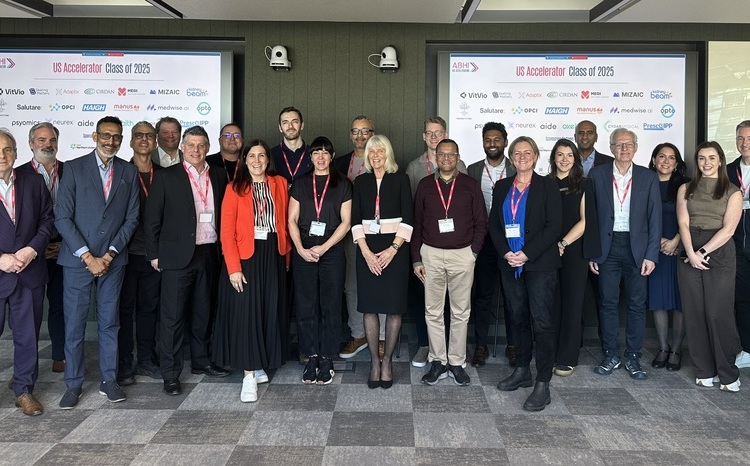Industry news in brief
- 12 June 2020

Our monthly industry round-up is back, this time featuring news Locums Nest has partnered with Rotageek to improve NHS rostering and NHS trusts have automated ordering and results of Covid-9 testing.
Locum’s Nest partners with workforce platform Rotageek
Staff bank management platform Locum’s Nest has partnered with cloud-based workforce platform Rotageek to improve NHS rostering.
The platforms’ combined technology will allow NHS hospitals to build compliant rosters in just a few clicks, broadcast vacancies across the Locum’s Nest network, and seamlessly allocate shifts directly onto the roster – freeing time for overstretched hospital administrative staff.
Locum’s Nest is leveraging its extensive network of over 30,000 healthcare professionals to help hospitals boost their contingent workforce and Rotageek is employing state-of-the-art machine learning algorithms to efficiently roster even the most complex of organisations.
Chris McCullough, chief executive of Rotageek, said: “It’s our mission to create a step-change in rostering to improve not only how businesses and organisations run their operations but to also positively and significantly impact the lives of shift-based workers.
“As a former doctor, I am particularly passionate about taking those benefits to the healthcare sector with as much success as we have achieved in the retail sector and Locum’s Nest are a perfect partner who shares our vision exactly.”
Barclays Ventures invests in Innovate UK’s Healthy Ageing Accelerator
Barclays Ventures has been selected as one of three investment partners to work with Innovate UK as part of its Healthy Ageing Investment Accelerator.
Through the partnership, funds provided by UK Research and Innovation (UKRI) via Innovate UK will match funding from Barclays Ventures to support UK businesses solving the UKRI Industrial Strategy ‘Healthy Ageing’ challenge.
The Healthy Ageing challenge is part of the government’s Industrial Strategy Challenge Fund and aims to enable businesses and social enterprises to develop products that support people as they age, assisting people to remain active, independent and self-sufficient for as long as possible.
The challenge brings together UK businesses and researchers to support people to stay in their homes for longer, tackle loneliness and increase independence and wellbeing.
Investments under the Healthy Ageing challenge will receive a share of the £20 million fund.
Ben Davey, chief executive of Barclays Ventures, said: “This partnership presents an exciting opportunity to further support investment into innovative businesses in this challenging time, particularly in the HealthTech sector, an area that we’re passionate about as we look for ways that technology and innovation can contribute to a healthy, productive society.”
George MacGinnis, healthy ageing challenge director at UK Research and Innovation, said: “Working together we will support the best innovative businesses to develop novel services and products that will have a real impact for people and their carers to help them remain healthy, independent and socially connected.
“This is a great example of how public and private funding can work together to enhance the support available to UK innovators. UK Research and Innovation will be investing further in collaborations of this type over the next few years.”
NHS trusts automate ordering and results reporting for Covid-19
South Tyneside and Sunderland NHS Foundation Trust and Gateshead Health NHS Foundation Trust have collaborated with MEDITECH and Xlab to go live with interfaces to the National Pathology Exchange (NPEx).
The technology will automate ordering and results reporting around Covid-19 testing.
Specimen tests can now be routed to Gateshead from other trusts via this integration to support crucial testing.
Gateshead, one of the NHS’ largest regional laboratories in the North East of England, uses MEDITECH’s Laboratory Information Management System (LIMS).
As part of the NHS’ strategy, NPEx interfaces will continue to be rolled out across the country. The integration project was completed in just a matter of weeks.
Gateshead pathology service manager Chris Charlton said: “This was an amazing effort by all, and a superb effort from MEDITECH, representing the key characteristics that any modern lab would be looking for from its LIMS supplier.”
Behold.ai awarded CE Mark for chest X-ray technology
Behold.ai has been awarded a CE Mark certification for the UK and EU for it’s artificial intelligence technology that can diagnose chest x-rays as normal.
The company estimates it’s tool could save the NHS £100 million in costs.
behold.ai and Wellbeing Software recently announced a collaboration to fast-track the diagnosis of Covid-19 in NHS hospitals using artificial intelligence analysis of chest X-rays.
A national roll-out would enable a large number of hospitals to triage suspected Covid-19 patients inside and outside of the hospital setting using chest X-rays. This is currently being used as the key diagnostic test for triage of Covid-19 patients.
Simon Rasalingham, chief executive of behold.ai, said: “This is a great result for the company and for our team of quality leaders, AI engineers and clinicians who have worked for years to develop a system that meets the highest quality standards.
“There is, quite rightly, a big focus on ensuring that the relatively new technology of artificial intelligence produces solutions that have a high degree of accuracy, reliability and scalability. This first in-kind regulatory approval is a key achievement for companies in this sector, the first autonomous AI algorithm to rule out normal chest X-rays.”
Dr Thomas Naunton Morgan, chief medical officer of behold.ai, added: “Crucially, at a time when NHS radiologists are increasingly reporting images from home, our technology is fast, safe and effective both inside and outside the hospital setting.
“For examinations identified by our algorithm as normal, with a high degree of confidence, our results can be automatically accepted as being as accurate as an experienced consultant radiologist, and much faster.”
Artificial intelligence endoscopy technology to be supplied in UK
Fujifilm Europe’s AI platform for real-time detection of colonic lesions and polyps, called CAD EYE, is to be made available in the UK.
By helping clinicians to visualise lesions, CAD EYE system supports the detection and early treatment of potentially cancerous polyps in the bowel.
Colorectal cancer is the third most common form of cancer worldwide and second most common cause of cancer deaths.
CAD EYE is automatically activated when a polyp is detected during an endoscopic procedure. A box appears on the endoscopist’s interface, which is designed to be user-friendly without compromising the image quality, and an audible sound alerts the specialist to the area of concern.
Owen Curtin, chairman of HC21 group which will distribute the tool, said: “This is a truly exciting development from Fujifilm and we’re proud to be bringing CAD EYE to the UK market on their behalf.
“Healthcare is constantly evolving, with patient needs becoming increasingly varied. Through CAD EYE, we hope that endoscopy clinicians will be able to identify and treat more lesions at an earlier stage, improving patient care, and reducing the cost burden associated with the treatment and aftercare required when a cancerous polyp been missed and allowed to develop.”




